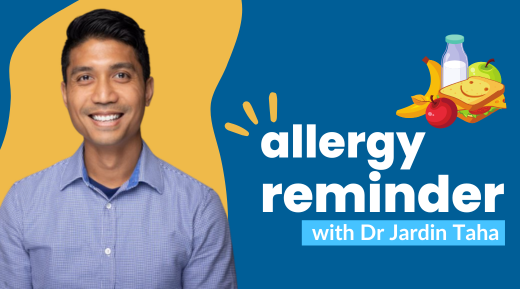



To receive important alerts and updates from Gold Coast Primary Health Network, please submit the form below.
"*" indicates required fields

To receive important alerts and updates from Gold Coast Primary Health Network, please submit the form below.

Dr Jardin Taha says by following best practice guidelines, we can greatly reduce the risk of severe allergic reactions in schools, including anaphylaxis.
He says parents can also help keep everyone safe with a few simple tips:
“Anaphylaxis is a serious allergic reaction that can happen in just seconds after exposure to allergens like peanuts,” Dr Taha said.
“It can send the immune system into overdrive, causing serious symptoms like sudden drops in blood pressure and breathing difficulties.
“As a precaution, let’s remind our kids to avoid sharing food with their friends when they start school.
“They should also be taught to seek help right away if they notice a friend with an allergy feeling unwell,” he said.
Dr Taha says parents of children with allergies should double check the school is aware of their conditions and treatments they’ll require if a reaction occurs.
He also says children learn more in their first five years than at any other time, so teaching them the basics of health from a young age is important.
“Regular health checks are a great way to track their development, catch any issues early, and ensure they’re ready for school.
“For some families, these checks are necessary to continue receiving payments from Services Australia.
“If your child needs a health check for this reason, you’ll get a letter from Services Australia when they turn three and a half, but it can be performed anytime between the age of three to five years,” he said.
So we can provide you with the most accurate information,
please tell us a little more about yourself

